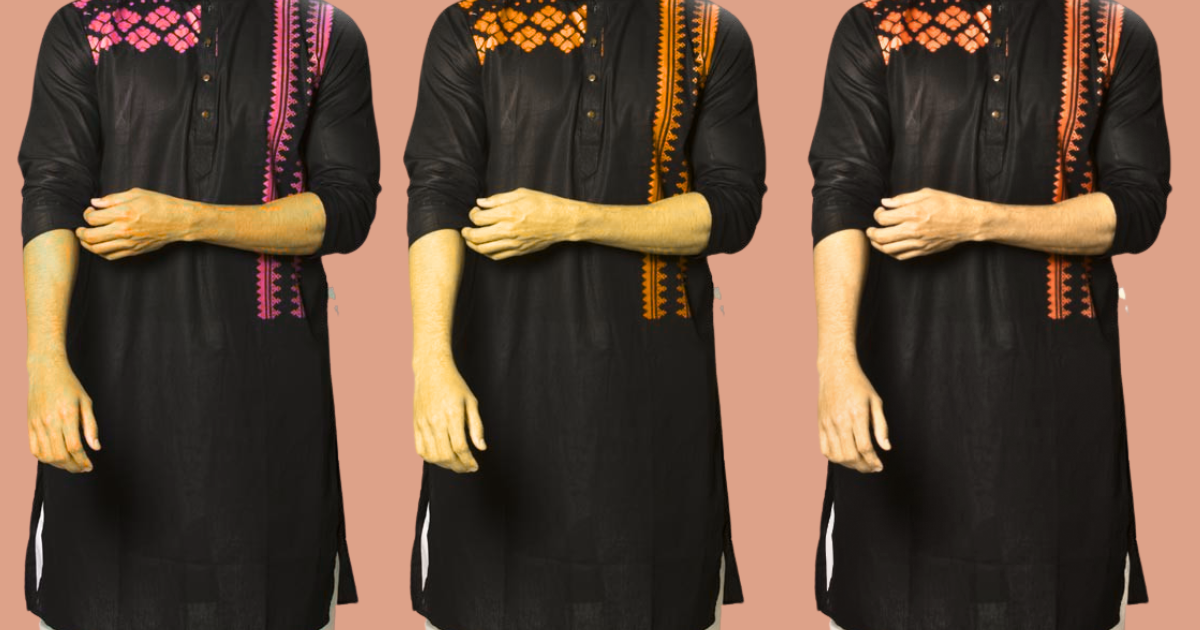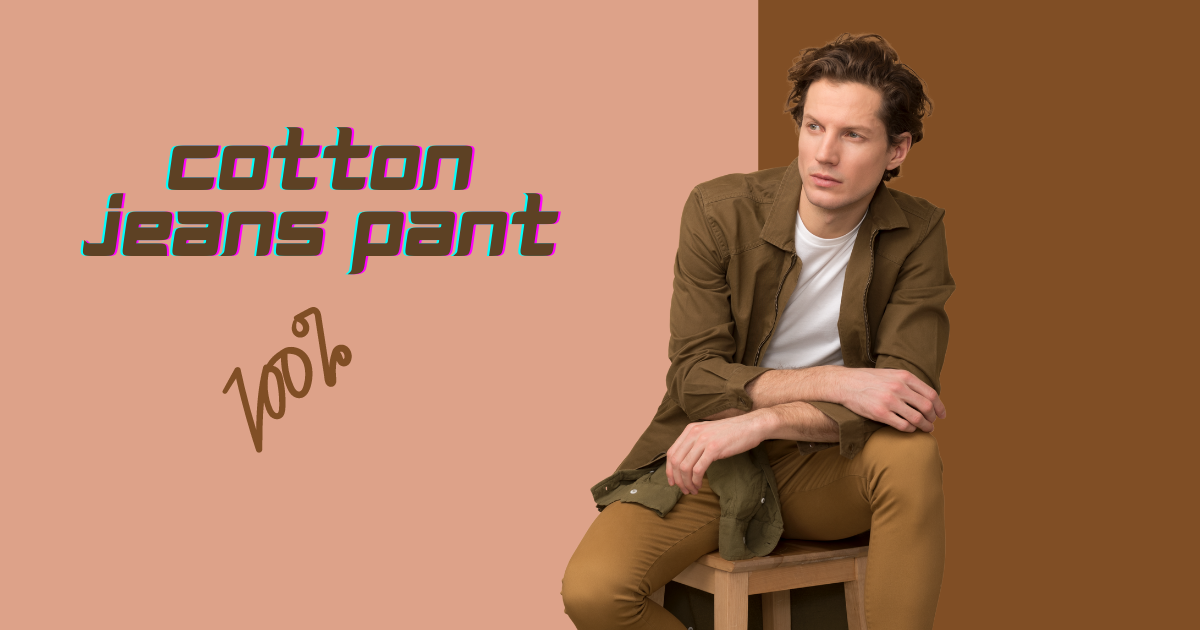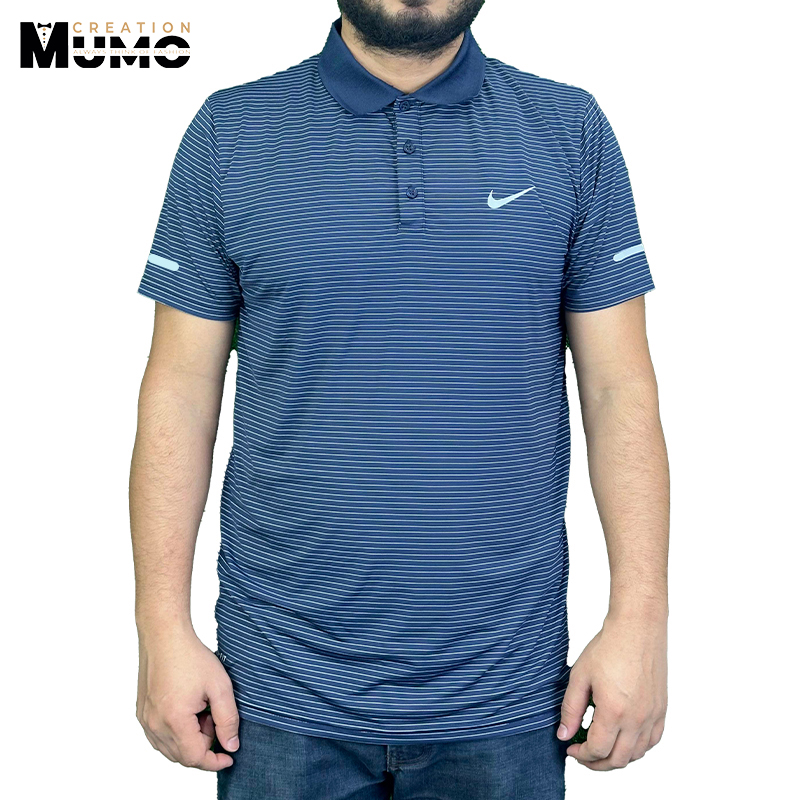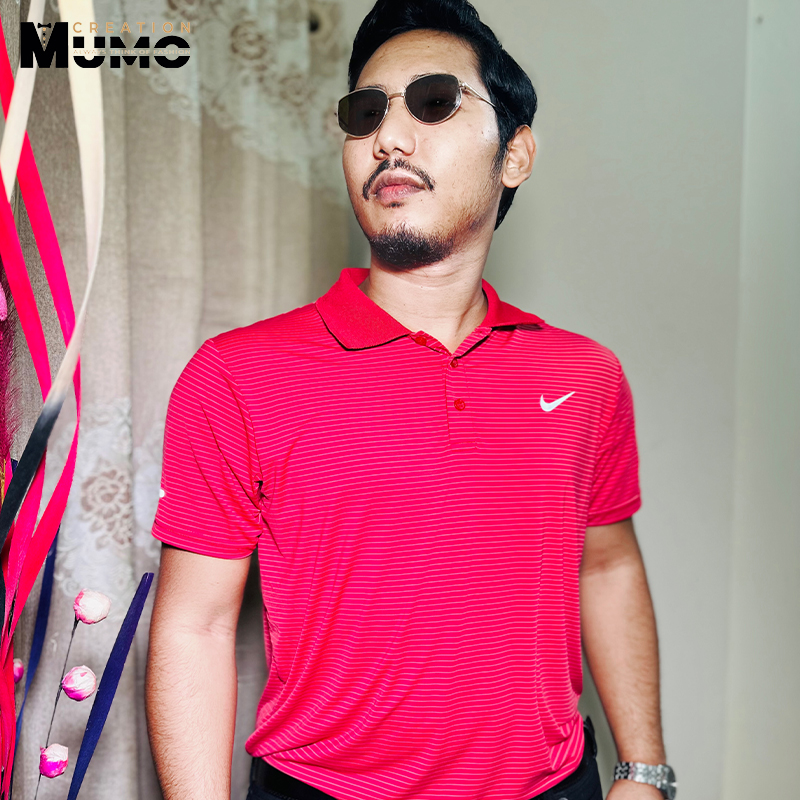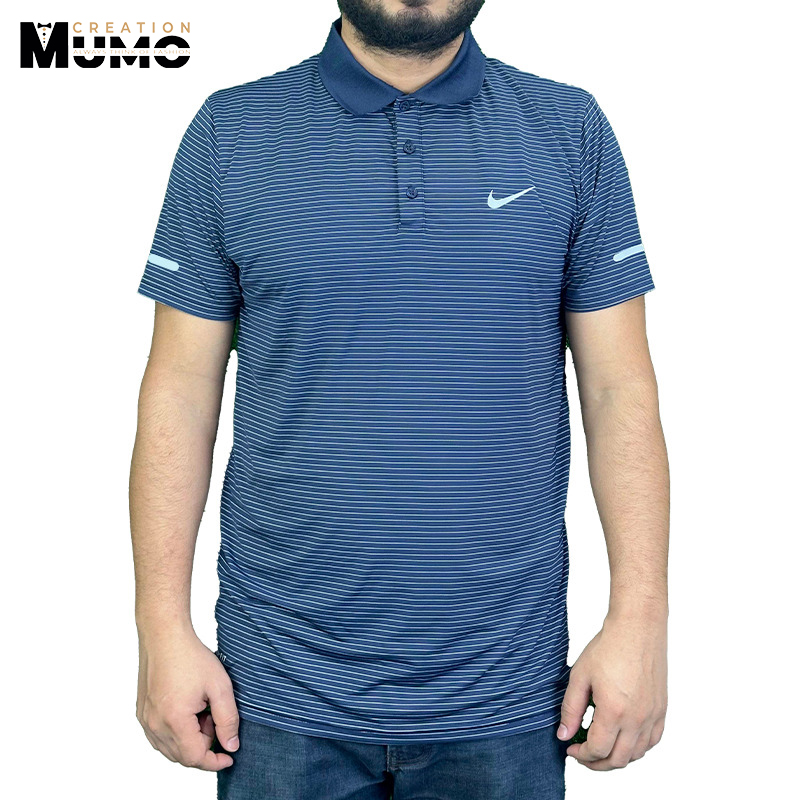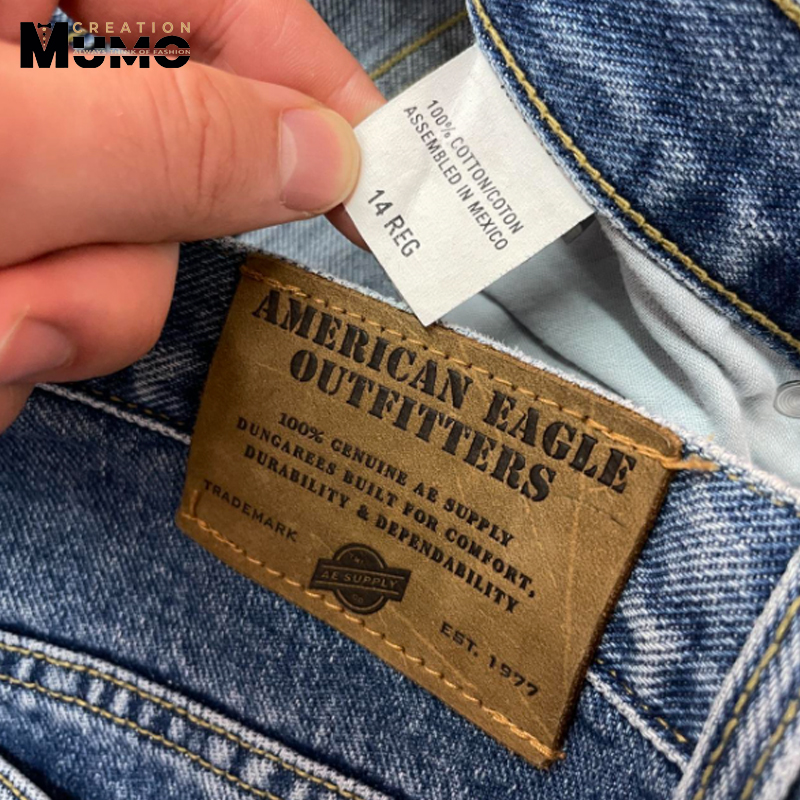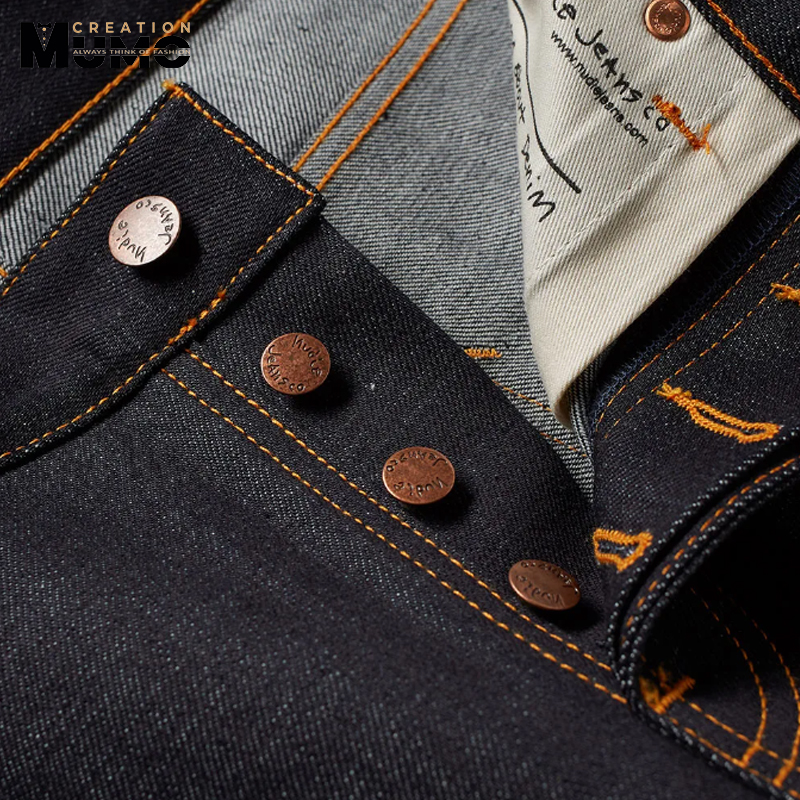We at Mumo Creations are proud to be your home for sustainable designs and timeless elegance. As denim connoisseurs we cannot wait to get into the subject of what is 100 % denim made of?. At Mumo, we consider denim as more than a fabric. It’s a way to express craftsmanship and sustainability. Pleasure of 100% denim is being discovered as we wander through its pure cotton component. We are going to undress the story behind this iconic product and find out why it’s at the core of our sustainable clothing efforts.
Composition of 100% Denim
What is 100 % denim made Of?
When we say “100% denim,” we’re talking about a fabric composed entirely of one primary material: cotton.
The Primary Material: Cotton
Cotton reigns supreme in the world of denim production, and for good reason.
Why Cotton?
Cotton is the preferred choice for crafting denim due to its unparalleled qualities.
Cotton is known for its breathability, allowing air to circulate freely through the fabric. This feature ensures comfort, especially during warmer weather or prolonged wear.
Moreover, cotton’s natural durability makes it ideal for creating hard-wearing denim garments. It can withstand the rigors of everyday use, ensuring longevity and value for the wearer.
Additionally, cotton possesses the remarkable ability to mold to the wearer’s body over time, providing a personalized fit and enhancing comfort with each wear.
Furthermore, cotton’s versatility extends to its dyeing properties, particularly with indigo dye—the hallmark of classic denim. Cotton fibers readily absorb and retain dye, resulting in vibrant, long-lasting color that defines denim’s iconic aesthetic.
Manufacturing Process
The process from raw cotton to denim fabric is a meticulous journey comprising several crucial stages. These stages play a vital role in shaping the final product, revealing the essence of what is 100 % denim made of?
Spinning Cotton Yarn
The process begins with spinning raw cotton fibers into yarn, laying the foundation for denim’s strength and texture.
Weaving Process
Weaving is where the magic truly happens. The cotton yarn is intricately woven on looms, forming the distinctive twill pattern that characterizes denim. This process not only contributes to denim’s durability but also creates its unique texture and appearance.
Indigo Dyeing Process
Indigo dyeing is perhaps the most iconic stage in denim production. The fabric, woven to perfection, undergoes immersion in indigo dye baths, imparting the timeless blue hue that epitomizes denim. This dyeing process is integral to denim production, as it not only adds color but also enhances the fabric’s character and depth.
Characteristics of 100% Denim
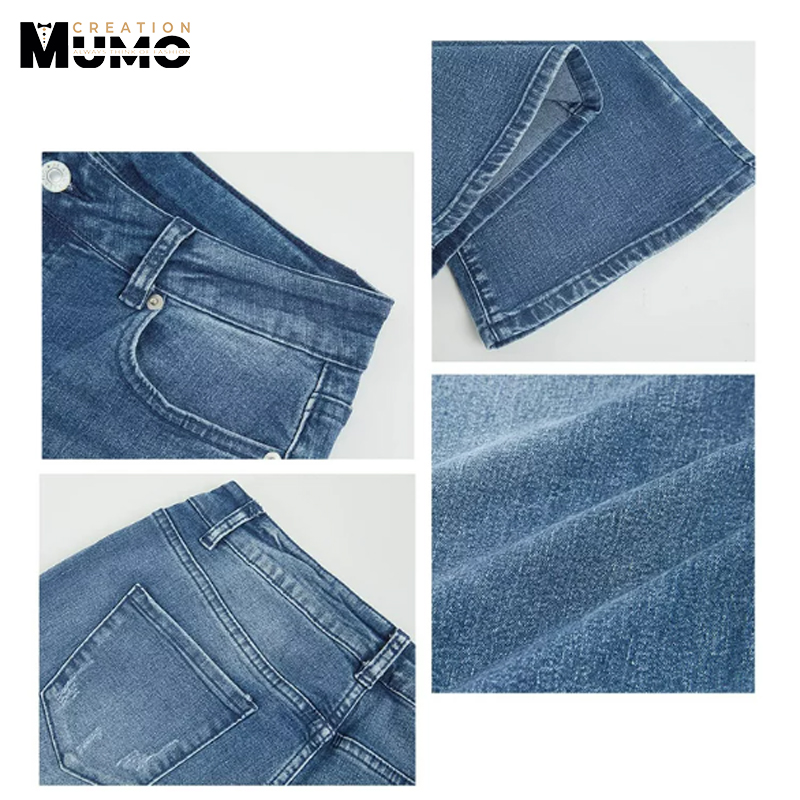
Strengths and Durability
Pure cotton denim boasts exceptional strength and durability, making it a preferred choice for long-lasting garments. The natural fibers of cotton lend resilience to the fabric, ensuring it withstands the rigors of daily wear and tear with ease.
Breathability and Comfort
One of the standout features of 100% denim is its breathability, which enhances wearer comfort. Cotton’s inherent ability to allow air to circulate through the fabric ensures a cool and comfortable experience, particularly during warmer climates or extended wear.
Comparison with Denim Blends and Other Fabrics
When compared to denim blends or fabrics made from alternative materials, 100% denim stands out for its authenticity and performance. While denim blends may offer certain advantages such as increased stretch or enhanced wrinkle resistance, they often lack the natural breathability and timeless appeal of pure cotton denim. Additionally, compared to synthetic fabrics, 100% denim excels in its ability to provide a classic look and feel while maintaining durability and comfort over time.
Sustainability and Environmental Impact
The journey of 100% denim begins with the cultivation of cotton, a process that can have significant environmental implications. Cotton cultivation often involves intensive water usage, pesticide application, and soil degradation, contributing to environmental degradation and biodiversity loss. Furthermore, the production of denim fabric, particularly the dyeing process, can result in water pollution and chemical runoff, further exacerbating environmental concerns.
Initiatives within the Denim Industry
In response to these environmental challenges, the denim industry has begun to embrace sustainability initiatives aimed at reducing its ecological footprint. From implementing water-saving technologies and using eco-friendly dyes to promoting fair labor practices and adopting circular economy principles, various initiatives are underway to minimize the environmental impact of denim production.
Considerations for Environmentally Friendly Denim Choices
For consumers seeking environmentally friendly denim choices, several factors should be considered. Look for brands that prioritize sustainable sourcing practices, such as organic cotton cultivation and fair trade partnerships. Additionally, opt for denim produced using eco-friendly dyeing methods and manufacturing processes that minimize water and energy consumption. Choosing quality over quantity and investing in timeless pieces that are built to last can also contribute to a more sustainable denim wardrobe.
Care and Maintenance
Caring for denim garments is essential to maintain their quality and longevity. Here are some tips on washing, drying, and storing your denim:
Washing
- Wash sparingly: Denim doesn’t need to be washed after every wear. Spot clean stains with a damp cloth and air out your denim between wears to keep them fresh.
- Use cold water: When it’s time to wash, use cold water to help preserve the color and prevent shrinkage.
- Turn inside out: Turn your denim garments inside out before washing to minimize friction and protect the outer surface from fading.
- Use a mild detergent: Choose a gentle detergent specifically formulated for dark or colored fabrics to avoid fading. Avoid bleach and harsh chemicals.
- Wash separately: Wash your denim separately from other garments to prevent dye transfer.
Drying
- Air dry: Hang your denim to air dry instead of using the dryer. This helps prevent shrinkage and maintains the fabric’s integrity.
- Avoid direct sunlight: When drying your denim outdoors, avoid direct sunlight, as it can cause fading and uneven coloration.
- Shape while damp: If your denim shrinks slightly after washing, reshape them while damp to restore their original fit.
Storing
- Fold properly: Fold your denim neatly to avoid creases and wrinkles. Hanging denim for long periods can lead to stretching, so folding is preferable.
- Store in a cool, dry place: Store your denim in a cool, dry area away from direct sunlight to prevent fading and moisture buildup.
- Avoid overcrowding: Allow some space between denim garments when storing them to maintain their shape and prevent wrinkles.
- Consider using cedar blocks: Cedar blocks or sachets can help deter moths and keep your denim smelling fresh.
Styling denim
styling denim for various occasions, the possibilities are endless, thanks to its versatility and creativity. Here are some suggestions on how to wear denim to suit different events and personal style preferences, all while showcasing the essence of what is 100 % denim made of?
Casual Outings
For casual outings, denim offers endless possibilities for comfortable yet stylish looks. Pair distressed jeans with a graphic t-shirt and sneakers for an effortlessly cool vibe. Layer a denim jacket over a basic top and leggings for a relaxed yet put-together ensemble. Accessorize with a baseball cap and backpack for added flair.
Work or Office
Denim can be incorporated into workwear for a polished yet contemporary look. Opt for dark-wash denim jeans paired with a crisp button-down shirt and blazer for a professional ensemble. For a more casual office environment, pair tailored denim trousers with a tucked-in blouse and loafers. Complete the look with minimal jewelry and a structured handbag.
Evening Events
Elevate denim for evening events by opting for sleek and sophisticated pieces. Choose a denim jumpsuit or a structured denim dress with statement heels for a chic and stylish look. Layer with a tailored blazer or a faux fur coat for added warmth and glamor. Accessorize with bold jewelry and a clutch bag to complete the ensemble.
Weekend Brunch
Denim is perfect for weekend brunch outings, offering comfort and style. Pair high-waisted jeans with a flowy blouse and ankle boots for a casual yet trendy look. Layer with a denim jacket or a cozy cardigan for added warmth. Accessorize with a wide-brimmed hat and oversized sunglasses for a touch of glamor.
Date Night
For a romantic date night, denim can be dressed up for a sophisticated yet relaxed look. Opt for skinny jeans paired with a silk camisole and heels for an effortlessly chic ensemble. Layer with a tailored blazer or a faux leather jacket for added edge. Complete the look with statement jewelry and a clutch bag for a touch of glamor.
Conclusion
100% denim is a completely cotton based fabric combining versatility, breathability and ageless design. From the beginning in Nîmes, France to its power nowadays as a fashion base, the journey of denim is a testament to the timeless beauty of it. Designers and enthusiasts, alike, are attracted to the charisma of this fabric that offers casual sophistication and is quintessentially a perennial favorite. For those who value quality, comfort and everlasting fashion, 100% denim will never go out of style. Then, what is 100 % denim made of? It’s just pure cotton woven into a fabric that captures the essence of practicality and flair.
FAQ’s
What is 100 % denim made of?
100 % denim is typically made from pure cotton. This means that the fabric is woven entirely from cotton fibers, giving it its characteristic strength, durability, and texture.
Why is 100 % denim preferred over denim blends?
100% denim, made solely from cotton, offers superior breathability, comfort, and a classic denim feel. Unlike denim blends, which may incorporate synthetic fibers, pure cotton denim is more natural and biodegradable.
Is 100 % denim sustainable?
Cotton cultivation and denim production can have environmental impacts, but 100% denim made from organic or sustainably sourced cotton can be a more eco-friendly choice. Look for certifications like GOTS (Global Organic Textile Standard) or BCI (Better Cotton Initiative) when purchasing denim products.
How do I care for 100 % denim garments?
To maintain the quality of your 100% denim items, wash them inside out in cold water, and avoid using harsh detergents or bleach. Hang dry whenever possible to prevent shrinkage, and iron on a low setting if needed.
Can I find 100 % denim products on Mumo Creations?
Yes, Mumo Creations offers a range of 100% denim products, including jeans, jackets, and accessories. Our denim pieces are crafted with care and attention to detail, ensuring both style and sustainability.
Are there different types of 100 % denim?
While the primary material in 100 % denim is always cotton, there can be variations in weave, weight, and finishing. Some examples include selvedge denim, raw denim, and washed denim, each with its unique characteristics and appeal.




